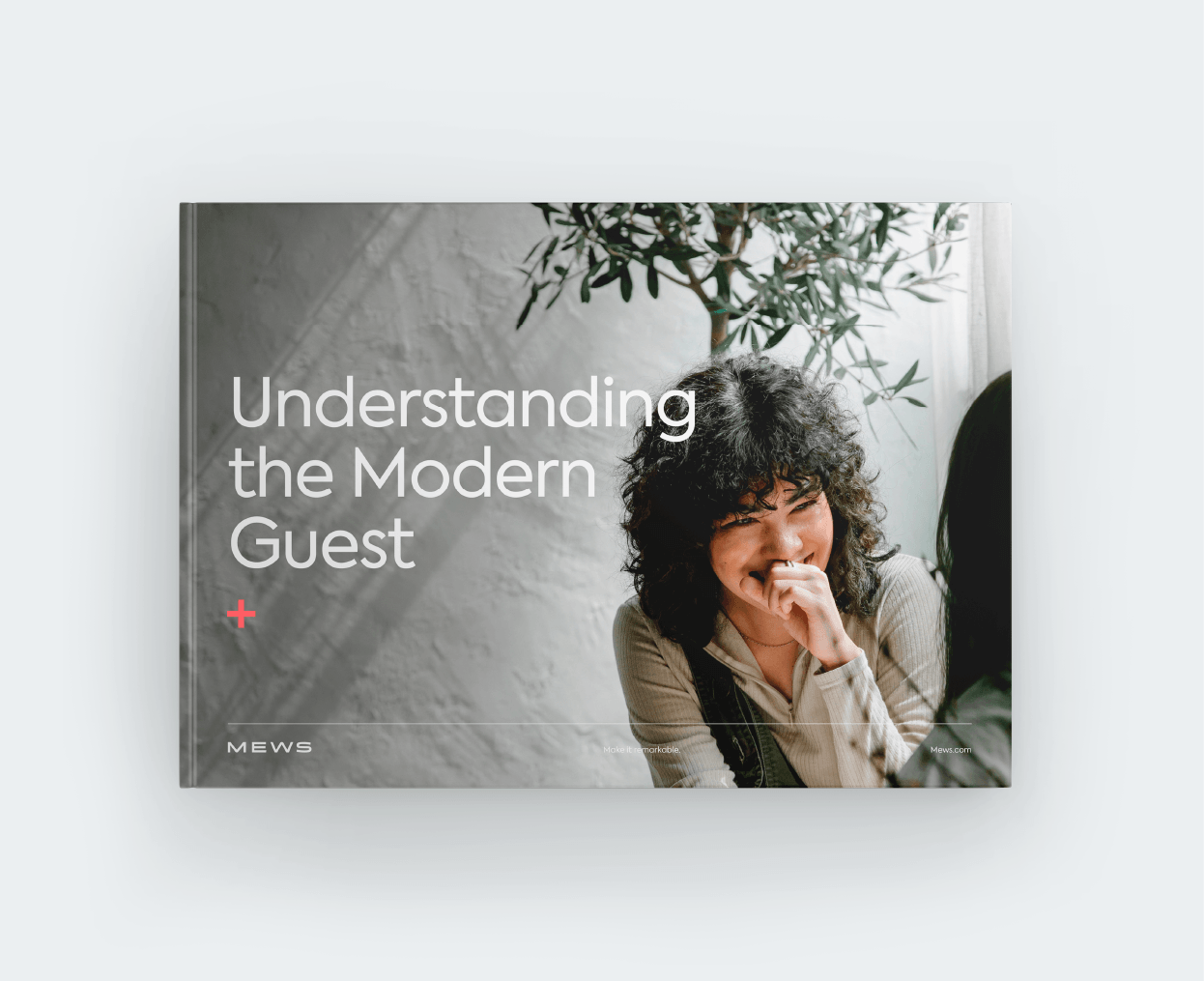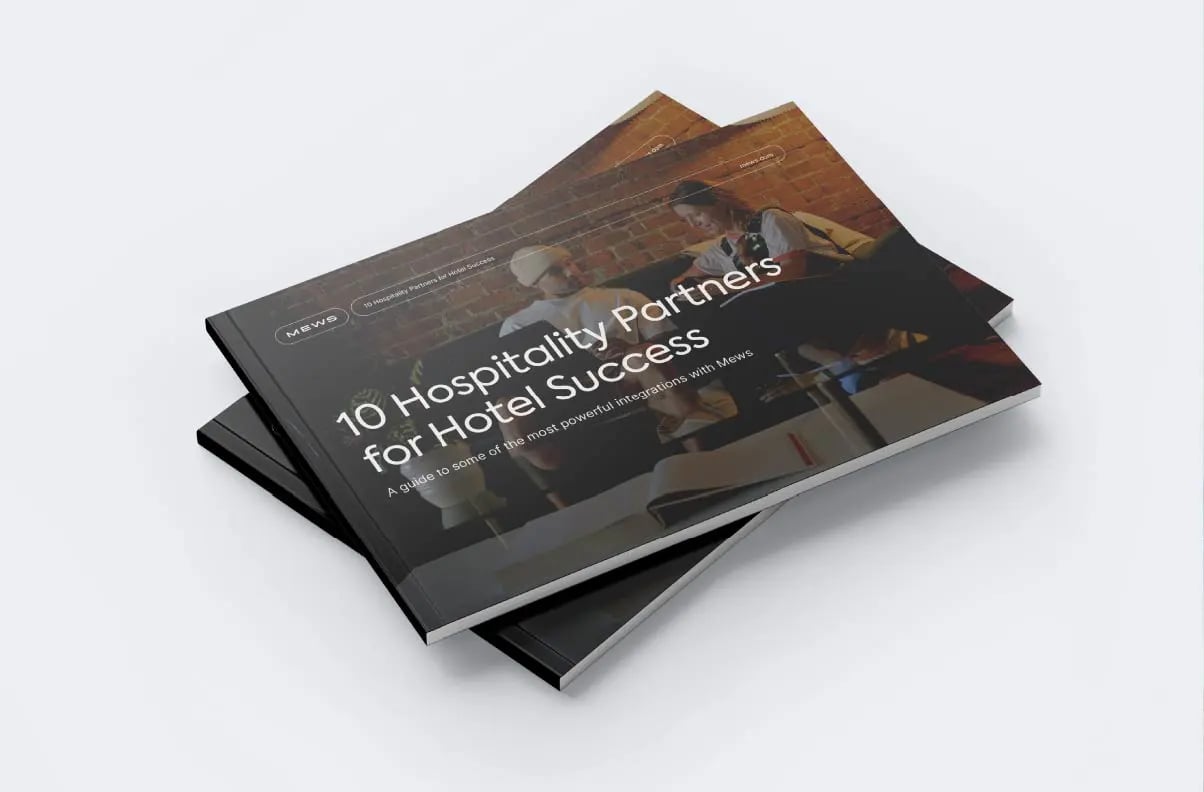There's no denying that the effectiveness of your marketing strategy largely depends on how well you profile your hotel guests – a practice commonly referred to as segmentation. Failure to define your guest personas can hinder your efforts to generate more bookings.
Guest personas describe the guests that your property typically attracts based on the characteristics of your property and market segmentation. The more automated and sophisticated your hospitality cloud is, the easier you'll find it to segment your hotel guests. Modern property management systems collect a wealth of demographic information during the booking process, ranging from age to purpose of trip.
In cases of direct phone bookings or walk-ins, front desk staff play a crucial role. They are responsible for selecting the correct guest segmentation in the booking, enabling the marketing team to implement successful marketing strategies and sales action plans.
Of course, the hotel's location also significantly influences the type of guest you attract. For example, a hotel in the city center differs from a hotel located on the beach or near a convention center.
In this article, we'll highlight twelve different types of guests and explain how to focus your hotel branding to properly target them.
Table of contents
Why do you need to know the different types of hotel guests?
Defining your ideal hotel guest enables you to develop strategies, offers, and communications that specifically appeal to this demographic. Certain guest personas will gravitate towards your brand more than others, whether due to location or the hotel's ambiance.
The goal is to attract the highest possible number of ideal guests. To achieve this, studying your PMS reservations history is crucial. Identify trends in region, guest numbers per room, age and other informative data points.
Once you've pinpointed the relevant guest personas, your promotional efforts, distribution strategy and revenue management will be clearly focused. Segmentation is key to understanding who you should target, enabling you to create marketing messages, pricing strategies, and personalized guest experiences that resonate with the right audience. To assist you with this process, we've compiled the following list of guest travelers who could book a stay at your property.

12 types of hotel guest and how to connect with them
1. Digital nomads
Guest profile: A digital nomad is a remote worker who can work from anywhere with a broadband connection. Some nomads are employed by companies, while others work for themselves. What they have in common is their mobile and location-independent nature. In this respect, they are not to be confused with people who work from home.
What they expect: It’s rare for this type of guest to arrive in a big group. Also, because of how they work, they tend to avoid hotels with slow or unreliable Wi-Fi. Instead of staying in their hotel rooms, they like to mingle with other people in communal areas, for professional purposes or to socialize.
How to connect with this type of guest: To assist these guests, do your utmost to help them sample the local culture. Keep an up-to-date calendar of meetups for travelers and local businesses, even if they aren’t happening on your premises. Most digital nomads enjoy immersing themselves in the surrounding community.
How to attract them: Location is also key to these types of guests. Of course, it’s not the same working from a hotel in downtown London as working from a cabana with Wi-Fi by the beach in Bali. You can use this understanding to target them not only based on the amazing services you offer but also by highlighting where you’re located. Mention nearby sites, distance from the beach or from important monuments or bars and restaurants. Depending on where the hotel is located, you can adapt the marketing messaging to highlight what you think will appeal to location-sensitive guests.
2. Business travelers
Guest profile: Business guests mostly have one thing on their minds: work. Generally, they are not in town to visit tourist attractions and will have hours of meetings every day. In most cases, they return to their rooms at the end of the day to unwind, then have something to eat before retiring for the evening.
What they expect: Some of these guests allocate time for recreational activities a few days before they leave. As well as the services required by other business travelers, these guests need amenities they can use during their leisure time.
How to connect with this type of guest: Additionally, you could offer special packages for these guests, featuring things such as customized room service, hotel restaurant tasting menus and discounted spa treatments.
How to attract them: To serve business travelers, post details and photographs about your in-room office facilities. Mention local restaurants or co-working spaces where business guests can meet or work. Collaborate with local businesses and attractions to provide discounted rates or tickets for shows and museums.
3. Conventional tourists
Guest profile: Conventional tourists are casual travelers who book holidays once or twice each year when they can get time off work. These guests do not tend to travel alone and are usually accompanied by their partners, relatives, or friends. They have a reasonable amount of spending money, although they usually don’t make impulse purchases.
What they expect: Guests in this category enjoy visiting the most famous tourist attractions. Often, they participate in group activities and go on guided tours of different areas. Also, they set aside time for relaxation to recharge their batteries before returning to the stress of their normal lives.
How to connect with this type of guest: Offer advice and recommendations about the local area. These guests might not request advice, but they would appreciate it if you provided it. One recommended approach is to offer them a local area guide when they check in, along with a map highlighting major attractions.
How to attract them: For the conventional tourist, it’s important to highlight the features of your hotel’s location that would be most attractive to a person visiting a location for a few days, i.e., “close to main attractions, just ten minutes from the airport, located in the downtown area.” All these factors will play a role in whether this guest chooses to stay with you. They want a convenient location that’s easy to get to and close to everything.
4. Family groups
Guest profile: Many millennials love traveling and now have children of their own.
What they expect: This segment seeks to experience the thrill of a family holiday after previously traveling the world as singletons. Research from AARP indicates that multi-generational travel has become more popular too. In 2019, multi-generational trips were among the top categories of trips planned by boomers and millennials. The same study shows that millennials planned more family holidays than boomers by a small margin.
How to connect with them: Assist guests with children in enjoying family-focused activities by offering discounted vouchers for museums, the aquarium, or the zoo. Provide a list of local family services or offer your own in-house babysitting service.
How to attract them: Highlight amenities at your hotel that will appeal to children, such as the swimming pool and nearby parks or beaches. Put yourself in the parents' shoes and offer amenities in rooms for youngsters, such as books, toys, and games.

5. Luxury travelers
Guest profile: Luxury travelers expect more for their money and are prepared to pay for an exclusive experience. These guests tend to research their holiday, frequently with the help of a tour operator, and know roughly what they want to do. Most luxury travelers are seniors, although there are exceptions to this rule. More than three-quarters of them have wives or husbands, so it’s rare for them to travel alone.
What they expect: They demand first-class amenities, exquisite service and meticulous presentation.
How to connect with this type of guest: To satisfy this type of guest once they’ve arrived, recommend some local shops and restaurants – and offer to arrange some private tours. These guests want privileged access to little-known regions of cultural significance, unfrequented by tourists. Always be on hand to help and anticipate their needs before they request anything.
How to attract them: To attract this type of guest in the research phase of their trip planning, it’s recommended to highlight the exclusivity of your hotel. You’ll want to highlight what makes your hotel different and the unique experiences you can offer these guests.
6. Budget travelers
Guest profile: Budget travelers are highly price-sensitive travelers who are motivated first and foremost by price.
What they expect: Because they tend to focus more on price, they are generally less demanding and require less attention from your front desk staff. They expect value for their money and basic services like Wi-Fi, regular cleanings, and a comfortable, hassle-free stay.
How to connect with this type of guest: To connect with this guest, it’s important to understand their needs and preferences while offering value with affordable rates and transparent pricing.
How to attract them: Be sure to highlight your value proposition, emphasizing value for money. Ensure your amenities are listed prominently, and if you have a pool or complimentary breakfast, include it in your offer.
7. Solo travelers
Guest profile: Solo travelers are guests traveling alone for business or pleasure. Nowadays, many digital nomads are also solo travelers.
What they expect: A solo traveler expects to have communal spaces to work from or connect with other travelers. They expect comfort, connection, and assistance when needed.
How to connect with this type of guest: To connect with this type of guest, highlight the allure of your communal spaces. Perhaps you have an on-site co-working space or offer Happy Hour to mingle on the rooftop. These places where they can be social, meet people, and network should they want to will be a bonus.
How to attract them: To attract this kind of guest, ensure you understand their unique needs and preferences while offering a welcoming environment where they can meet other people. Promote solo-friendly features like co-working spaces, single-occupancy room rates, and social activities or tours.
8. Event attendees
Guest profile: Event attendees are those attending events or functions hosted at the hotel or in the surrounding area.
What they expect: For those attending events on-site, they expect to be comfortable, have meals and coffee that are easily accessible, and not to have to leave the hotel if they don’t want to. For those attending events in the area, they will want an easy place to have coffee and breakfast in the morning and a comfortable bed to come back to after a long day's event.
How to connect with this type of guest: With this type of guest, it’s important to connect over convenience. You can do this by explaining the different amenities available on-site and the ease of transportation to and from your hotel.
How to attract them: You may want to create rates that are especially designed to include everything – breakfast, bottled water and other amenities so they don’t have to think about anything. Event attendees have one thing in mind: their events, so be sure to find a way to make your hotel appear to be the easiest and most comfortable solution. Be sure to highlight the location as well.
9. Special occasion guests
Guest profile: These are guests who come to your hotel to celebrate special occasions like weddings, birthdays, or anniversaries.
What they expect: They expect to be made to feel special. Ensure your front desk and amenities are aligned to do so.
How to connect with this type of guest: Little details will go a long way, whether it be a Happy Birthday card on the bed, flower petals on the floor, or a bottle of champagne. Anything you can do to go above and beyond is a good idea.
How to attract them: To attract special occasion guests, create special packages that appeal to them, including services like spa treatments, dinner for two, a wine tasting, or special events. Highlight your hotel’s location as it will play a big role in their decision-making process.
10. Health and wellness travelers
Guest profile: These guests are focused on physical, emotional, and mental wellbeing.
What they expect: They expect amenities like a spa, fitness center, a pool, as well as healthy dining options when choosing where to stay.
How to connect with this type of guest: Highlight your hotel’s amenities such as vegan options at your restaurant, fitness center, pool, spa, or other treatments. Focus on sustainability and other eco-conscious services.
How to attract them: Create an all-inclusive health and wellness package. They tend to prioritize destinations and accommodations that are aligned with their personal wellness values and goals, so attract them by showcasing your hotel’s commitment to the wellbeing of guests, the local community and the environment.
11. VIP guests
Guest profile: VIP guests are celebrities, dignitaries, or high-profile clients.
What they expect: This target audience expects tailored features to meet their needs, such as a backdoor entrance, the ability to check-in from their phones to avoid the reception, and to be pampered with special details.
How to connect with this type of guest: Personalize and customize your offer to meet their needs. Each VIP guest will have different requirements, so it’s important to understand their needs and preferences during the booking process. Communication with the person making the booking is key to ensure their expectations are met.
How to attract them: Attracting this kind of guest involves promoting your exclusivity and ability to accommodate special needs and requests. Reach out to PR firms and personal assistants to highlight how your hotel can tailor its offerings to meet their needs. Highlight your hotel's discretion, privacy, and ability to provide a seamless and luxurious experience.
12. Extended stay guests
Guest profile: Extended stay guests are those who stay for an extended period, whether it be for a work assignment or relocation purposes.
What they expect: They expect home-away-from-home amenities like a water boiler in their room, a small fridge, and a microwave. They might desire a little more space and comfort.
How to connect with this type of guest: Highlight how your hotel can provide a home away from home experience. Whether it's a spacious room or communal areas where they can relax, emphasize the comfort and convenience of your accommodations. As they will be in constant contact with your staff, personalize their experience by learning their name and checking in regularly to see if they need anything.
How to attract them: Focus on amenities like a small kitchenette or larger rooms. Offer special prices for long-term guests or packages that include additional services, making staying at your hotel more appealing than choosing an apartment. Highlight the flexibility and convenience of staying with you for an extended period.
Conclusion
Guest personas are essential for determining the most effective revenue management, distribution, and promotional strategies for your hotel. Segmentation of guests can be based on various factors such as behavior and demographics. However, it's crucial to have a clear understanding of your hotel's offerings, how to effectively communicate your location, and what sets your hotel apart to tailor your marketing messages to each segment.
Once you have this clarity, utilizing guest personas becomes instrumental in researching and formulating profiles for your own guests. You can develop aspirational personas as well as those reflecting your PMS data to identify appropriate policies for each guest type. However, it's important to ensure that your personas remain realistic and accurate, providing a strong foundation for the growth of your business.
Understanding the Modern Guest

Get to know today's traveler in order to maximize your revenue and ensure your property is set up for a remarkable guest experience.

10 Hospitality Partners for Hotel Success
Download now
Table of contents
Hospitality hot takes straight to your inbox



.webp)
